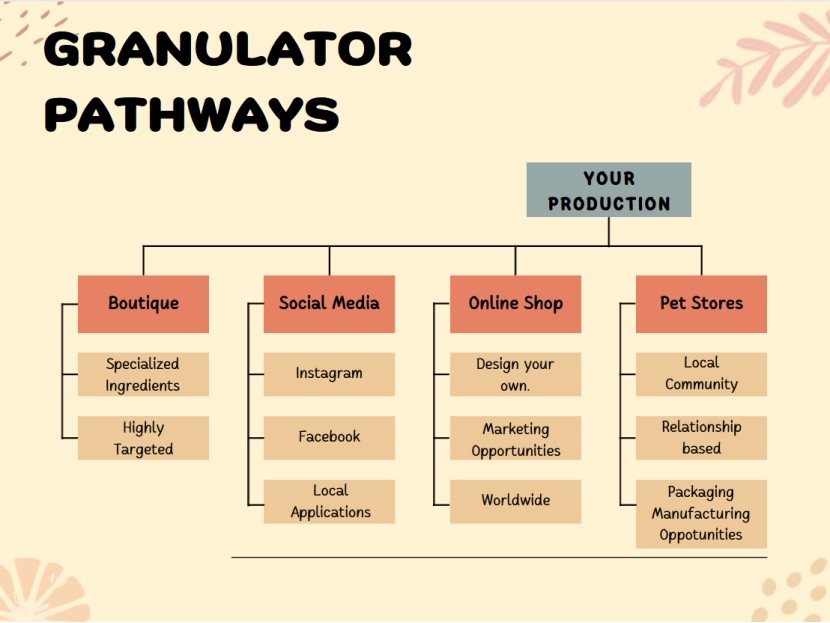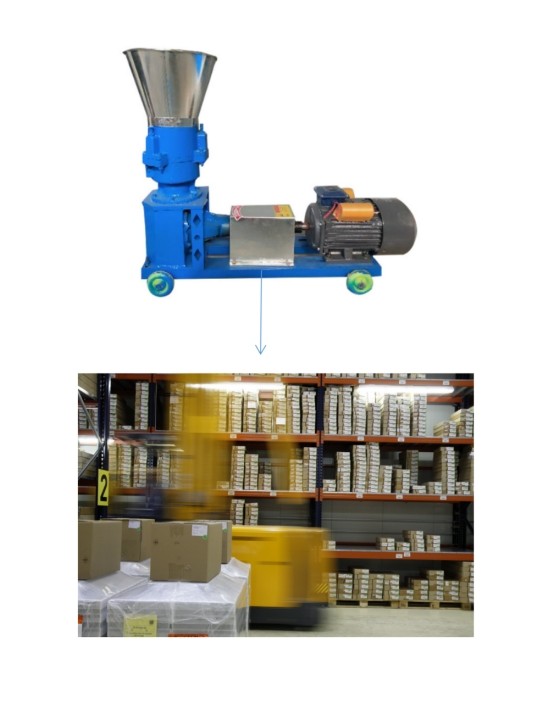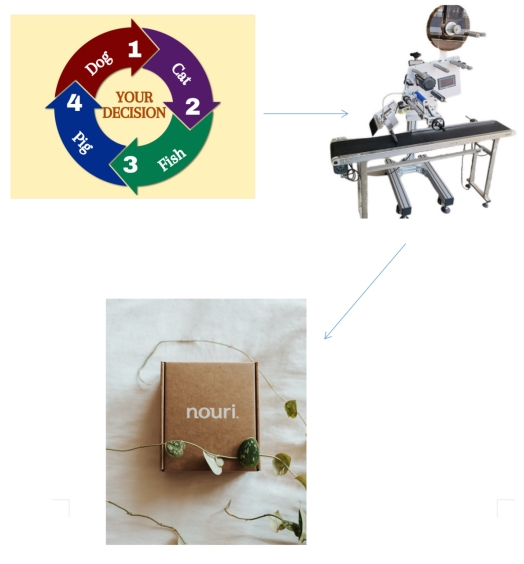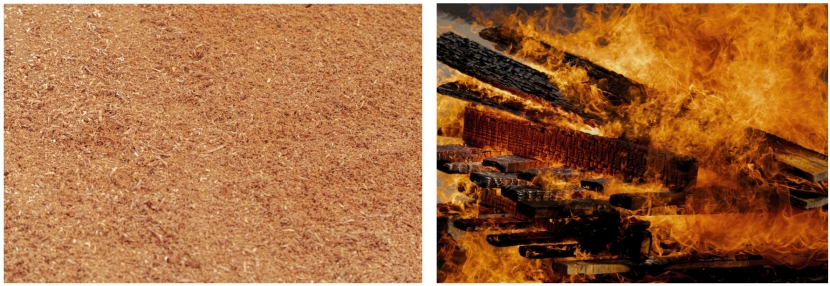Pellet sell-it: Manufacturing Feed Pellets
The
Feed Pellet machine has multiple angles in which someone can operate a
business. Being realtivley cheap to start up wit ha price of under
$10000, it can be a good investment for developing or developed
countries depending on where one lives.
Let's take a close look
at the numbers and how they can be incorporated into the business model
for starting a pet food brand using a fish feed granulator:
- Power: 15KW
- Staff: 1
- Area: 20M2
- Raw Materials: Amino acids, stalks, cereals, oils, etc.
- Environmental Impact: LOW
- Production Capacity: 150KG/HOUR
- Other Produce: Dog feed, pig feed, cat feed, etc.
- Minimum Budget: $100-$10,000
- More details...
To calculate the production cost of pet food pellets, you need to consider the cost of raw materials, labor, and electricity.
Raw Materials Cost: The cost of raw materials depends on the type and quality of the ingredients used. Let's assume that the raw material cost for producing 1kg of pet food pellets is $1.
Labor Cost: Since the staff requirement for operating the fish feed granulator is only one person, let's assume a monthly salary of $1000.
Electricity Cost: The power consumption of the fish feed granulator is 15KW per hour. Let's assume that the cost of electricity is $0.10 per KW. So, the electricity cost for producing 1kg of pet food pellets is $1.50.
Therefore, the total production cost for 1kg of pet food pellets would be:
Raw Materials Cost + Labor Cost + Electricity Cost = $1 + $1000/30 days + $1.50 = $33.17 per 150kg produced per hour.
Assuming you sell the pet food pellets at a price of $2 per kg, your revenue for producing 150kg per hour would be $300.
Starting a pet food brand using a fish feed granulator has numerous advantages, including small area requirements, low environmental impact, high production capacity, the ability to produce multiple types of animal feed, manageable electricity usage, and a low minimum budget. With these advantages, there are various business models that you could consider while starting your pet food brand:
Direct Sales to Pet Owners: You can sell your pet food pellets directly to pet owners through pet stores, online marketplaces, and social media channels. This model is ideal if you are targeting a specific niche market such as organic or grain-free pet food. The high production capacity of the fish feed granulator allows you to fulfill customer demand quickly, while the low environmental impact aligns with the values of environmentally conscious pet owners.

Wholesale to Pet Stores: Another option is to sell your pet food pellets in bulk to pet stores, veterinary clinics, and animal shelters. The high production capacity of the fish feed granulator makes it easier to supply large quantities of animal feed, while the low minimum budget and manageable electricity usage enable you to offer competitive pricing to retailers.

Private Labeling: Private labeling your pet food pellets can be a profitable business model as it allows you to sell under a pre-existing brand name. You can offer custom formulations to different retailers to cater to their unique customer base. The ability to produce multiple types of animal feed using the fish feed granulator allows you to cater to the specific needs of each retailer. Combing this method with an automatic labeling machine can further automate your business.

Online Sales: Establishing an e-commerce website is essential in today's digital age, allowing pet owners to order your pet food pellets online. A strong online presence with effective marketing strategies like SEO optimization, email marketing, and social media advertising can help you reach a wider audience. The low minimum budget and manageable electricity usage also make it easier to maintain profitability with online sales.

Distribution Partnership: Partnering with a distributor can help expand your pet food brand reach to new markets. The high production capacity of the fish feed granulator enables you to supply large quantities of animal feed to distributors, while the low environmental impact aligns with the values of environmentally conscious distributors.

Value-Added Services: Offering value-added services such as nutrition consultation, feed formulation, and pet care services can differentiate your brand from competitors and add value to your business. The ability to produce multiple types of animal feed using the fish feed granulator allows you to offer a wide range of value-added services to pet owners and retailers.

Food pellets are also used as a source of energy for cooking and heating in some parts of the continent. Pellets made from agricultural waste, such as rice husks and sawdust, can be burned in specially designed stoves to provide a cleaner and more sustainable alternative to traditional fuels like charcoal and firewood. Using this alternate method of energy creation, there are new avenues to explore.
 https://kichuguu.com/blog/feed-pellet-manufacturing
https://kichuguu.com/blog/feed-pellet-manufacturing
Comments
Post a Comment